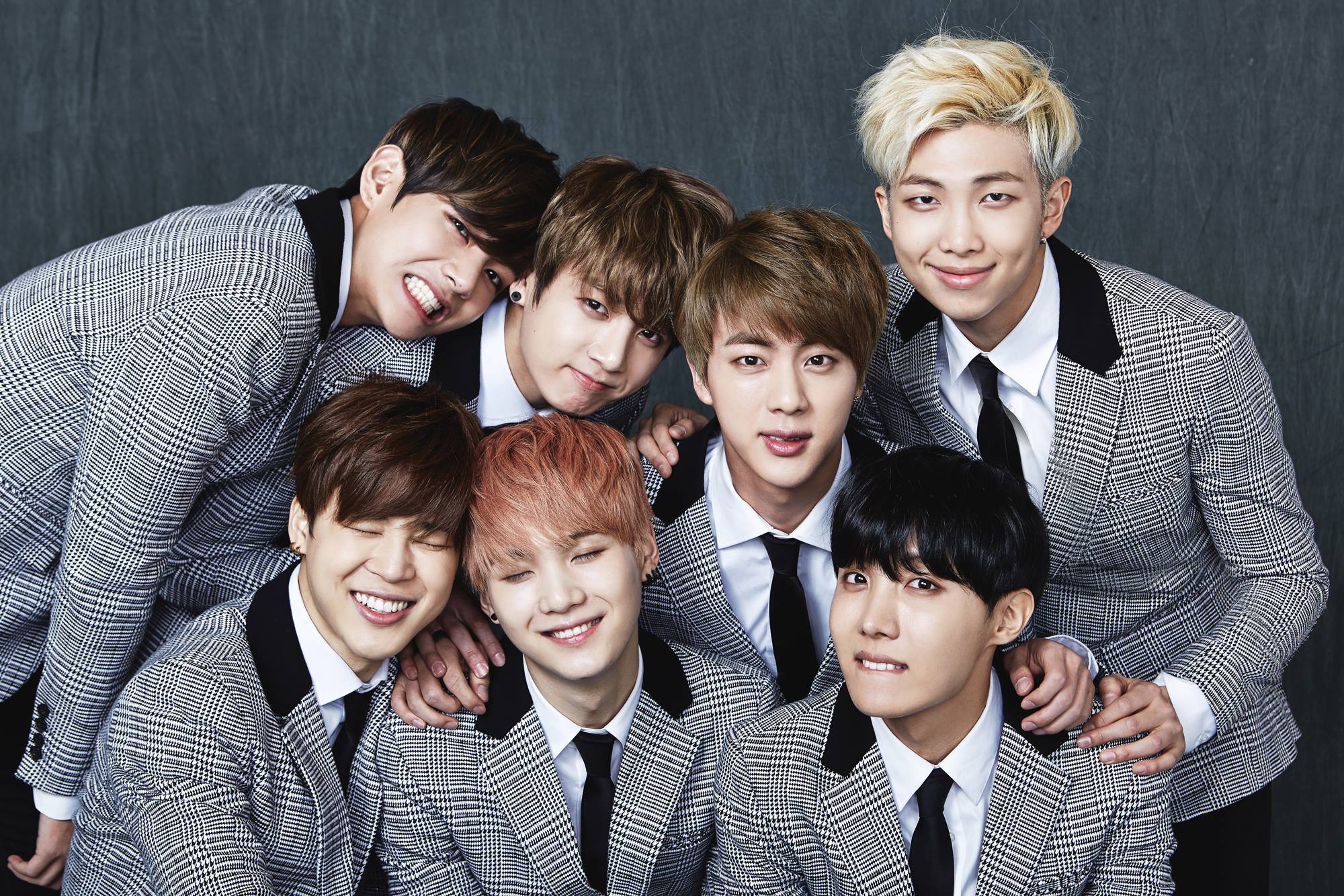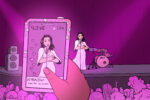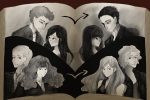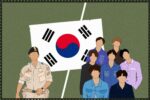K-pop Don’t Stop
I mean, have you heard it?
By Karen Juarez, University of Illinois at Chicago
Korean pop, or K-pop as it is more commonly known, has grown into what many would consider an international fad.
The spunky, crazy, fun music of my youth, which started off as something I thought I would never understand, has unrepentantly taken over my life and turned everything upside down.
Unfortunately, there is a lot of judgement that comes as a result of listening to K-pop, and at first it was hard for me to understand why. In a nutshell, the issue boils down to one of perspective. In the U.S., it is uncommon to listen to foreign music, though across the world, people listen to artists in Spanish, German, French and English without hesitation; only in America does the language of music make such a difference in its reception.
For me, my interest in K-pop was born out of curiosity. It was a hot July day in 2010 when I came across Girls’ Generation’s “Gee.” I was fascinated, not just because of the vivid colors and unintelligible language, but because of the dancing. At the time, I was in various dance groups, so their perfect choreography enthralled me. How many times did they have to practice to get the dance down perfectly?
But soon I was humming the melodies, and my interest grew so quickly that I found myself searching the song again. I felt guilty, though I didn’t know why, but I went back and looked at the video again anyway. Somewhere in the YouTube comments someone mentioned how cute the message was, which was when I realized I could google the lyrics.
When I finally translated the indecipherable words, I was again fascinated. I could understand whatever I wanted! And so, my new hobby grew, and I began researching K-pop as a pastime.
My curiosity was insatiable. I learned that K-pop usually functions in groups, and that the genre is rooted in a phase similar to the American one that produced N’SYNC and the Backstreet Boys in the nineties. I learned that in Korea, the bands come together through a formula: musicians train with entertainment companies for years, then, if they are talented enough, they are placed in a group. When choosing group members, executives consider a variety of factors, ranging from talent and enthusiasm to basic physical appearance.
What really drew me in were the groups’ work ethic. One band, Infinite, said on a Korean show called “Sesame Player” that they practiced eighteen hours every day. More than anything, I loved to see how passionate the musicians were about their craft.
Later, I learned that if Infinite had not worked so hard, the group would have broken up. If their song, “Be Mine,” had done poorly, they would have had to call it quits, because the company supporting them would have gone bankrupt. That’s why, when they won for the first time on a Korean music show, that it was unsurprising to see how thrilled they were.
Music shows like the one that birthed Infinite are part of a system that’s specific to K-pop, and are extremely relevant to the industry. In them, album sales, fan votes and music-video views are added together to determine a weekly winner; some of the more popular shows are “Music Bank,” “M Countdown” and “Inkigayo.”
As I listened out to more and more K-pop, I felt like I was a sponge. I was just observing and absorbing tons of information at once. The genre had become one of my favorite things to listen to, regardless of how much I listened to the radio in English and Spanish. Inevitably, my affinity for the foreign pop eventually turned into a burning curiosity to experience life in Korea, and it was at this point that I learned an important lesson about “Koreaboo,” a term that refers to the appropriation of Korean culture.
Koreaboos, or fans who appropriate Korean culture, often “wish” they were Korean or “speak” Korean poorly.
These faux fans appear culturally thirsty, trying too hard to prove that they know everything about Korea, just because they listen to K-pop or watch Korean television.
The negative stigma Koreaboos bring to the K-pop fandom’s reputation is something I wish I could erase. Most of the appropriators are ignorant as to why appropriation is wrong, and often don’t even know that they are doing it at the time.
Suspecting me of being a Koreaboo, critics have rolled their eyes when they asked me, “Why did you learn Korean?” and I responded, “K-pop.” If they have dealt with appropriators I am sorry, but my reason for learning the language was as simple as wanting to understand the lyrics. I’ve continued learning because now I want to travel to Korea, which means communicating with the people and environment around me.
I credit my current favorite band, BTS, who I will be seeing live for the second time in March, with cementing my love for the genre. BTS is the only group I can say that I have followed from their beginning. When I heard “No More Dream,” I had just graduated high school and the song felt like a slap to the face.
“I want a big house, big car and big rings/but actually I don’t have big dreams.” I was infuriated by the lyrics. How could a song have me questioning my life choices with two lines? At the time, I didn’t have many dreams. I was just doing what was expected of me, instead of living for myself.

By some miracle, when I walked into a college class on Shakespeare, I fell in love with English. I knew that everyone was going to question the sense of getting an English degree, but, on September 10, 2013, BTS showed me that I was not alone.
“N.O.,” a piece from the perspective of children trapped within the school system, screamed at me. “Everybody say no/It’s not going to work anymore/Don’t be trapped in someone else’s dreams,” the group sings.
The boyband on the other side of my screen, in a completely different language, spoke louder to me than any of my friends. Despite the skepticism of those around me, the song enabled me, at a critical juncture in my life, to stick to the only academic track that I knew would challenge me. Without BTS, I wouldn’t be where I am, or who I am, today.
I know K-pop isn’t for everyone, and I don’t want it to feel like I’m forcing the genre down your throat. But for me, the music has changed my life.


















[…] Nggak harus suka K-POP kok untuk kuliah di jurusan ini. via studybreaks.com […]
[…] Nggak harus suka K-POP kok untuk kuliah di jurusan ini. via studybreaks.com […]